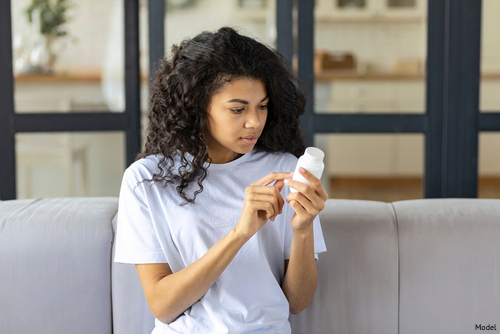When examining your own health, from your diet to your mental well-being, it’s important to keep your hormones in mind. Your hormones play a critical role in all bodily functions — they can affect blood sugar, blood pressure, growth and fertility, sex drive, metabolism and even sleep. In our latest free webinar, Susan Eichorst, PA-C, MMSc, discusses the ways endocrine-disrupting chemicals (EDCs) can interfere with your hormones, and how to best minimize your exposure to these chemicals. With the right guidance, you can make better health decisions that enhance your quality of life and help you thrive.
Let’s jump in:
What is an endocrine-disrupting chemical (EDC)?
Endocrine-disrupting chemicals, also known as EDCs, are natural or manmade chemicals that may mimic, block or interfere with the body’s natural hormones, which play a part in the endocrine system. EDCs may disturb the body by mimicking natural hormones, essentially tricking the body to respond as it would to the genuine hormone. EDCs can also bind to hormone receptors, blocking the natural hormone from binding and thus disrupting the normal signals and responses to and from the cell. Other ways that these chemicals can affect the body include modifying the body’s hormone sensitivity and impeding the production and regulation of hormones.
The most common EDCs include:
● Bisphenol A (BPA) is the most pervasive EDC in the world. This chemical is produced in large quantities, usually to be used in polycarbonate plastic production.
Where it’s found: Plastic toys, packaging, medical equipment, kitchenware and automobile parts. BPA was banned in children’s products like baby bottles in 2012, but it’s often still used in water bottles, plastic containers and canned food packaging.
Potential effects on the body: Exposure to BPA, which mimics estrogen in the body, is linked to infertility problems like reduced egg quality. It may also contribute to early puberty, breast cancer, prostate cancer, PCOS and heart disease.
● Dioxin is a toxic compound produced as a byproduct of industrial processes such as herbicide production, paper bleaching and other chemical manufacturing of products containing chlorine.
Where it’s found: Throughout the environment worldwide. A persistent pollutant, the highest levels of dioxin are found in certain soil and sediments, as well as foods like beef, pork, lamb and dairy products.
Potential effects on the body: Dioxins can disrupt hormone signaling in the body, reduce fertility, interfere with embryo development and cause other complications during pregnancy.
● Perfluorochemicals (PFCs) are a group of synthetic chemicals used in a number of consumer products since their development in the 1950s. The most ubiquitous PFCs are perfluorooctane sulfonic acid (PFOS) and per-and polyfluoroalkyl substances (PFAS).
Where it’s found: Non-stick cookware, surface coating in paper and cardboard products, carpets and certain waterproof textiles.
Potential effects on the body: Exposure to PFCs may cause altered immune and thyroid function along with changes in cholesterol and liver enzymes. Multiple studies have found that PFCs are present in the blood and umbilical cords of 99% of pregnant women, suggesting that developing fetuses may be exposed to these chemicals.
● Phthalates, also known as plasticizers, are chemicals used to make plastics more durable.
Where it’s found: Cosmetics, personal care products (soaps, shampoos, hair spray), shower curtains, vinyl flooring, lubricating oils and cleaning products.
Potential effects on the body: When absorbed into the body, phthalates may mimic or block female hormones. Phthalates also contribute to male infertility, causing decreased sperm counts and worsened sperm quality. In utero exposure can lead to complications like genitourinary tract malformations.
Get your health on-track and take control of your hormones today — we’re here to help! Call 303.327.7300 or request a consultation online today to get started.
